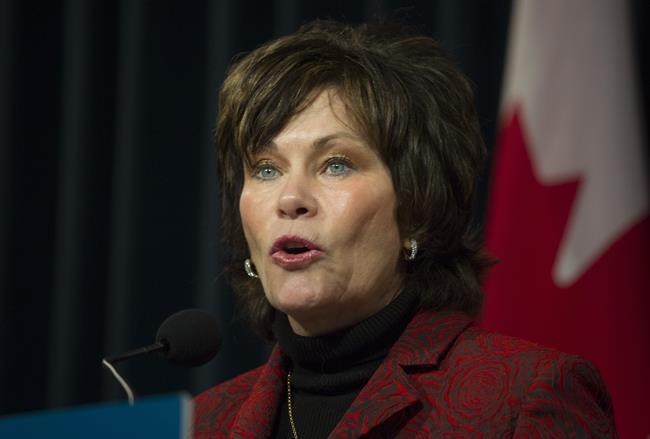CALGARY — As governments around the world grapple with how best to assist citizens with the rising cost of living, Alberta's energy minister is warning that anything resembling the U.K.'s so-called "windfall tax" on the profits of oil and gas companies must not be implemented in Canada.
The British government last month announced plans for a 25 per cent windfall tax on the profits of oil and gas companies, with the aim of raising funds for cash payments to help millions of British citizens cope with rapidly rising energy bills.
Globally, oil and gas companies are earning record profits in 2022 as surging demand for energy and the war in Ukraine pushes commodity prices to sky-high levels. Spain and Italy have already approved similar-style taxes on energy companies to help citizens pay for their lights and fuel, while recent news reports quoted a senior White House advisor as saying the Biden administration is actively looking at what a windfall tax could look like.
But Alberta Energy Minister Sonya Savage said Wednesday if Canada were to take similar steps, it would be considered an "extreme act of aggression" against provincial constitutional authority.
"If they (Ottawa) were to impose a windfall tax on the profits of the oil and gas sector in Alberta at this time, you will see an unprecedented 'fire on the prairie' of regional alienation," Savage said.
The Trudeau government has not proposed a windfall tax on Canada's oil industry, which has only very recently emerged from nearly a decade of rock-bottom prices, limited investment, consolidation and layoffs.
However, some environmental groups and non-profits have publicly called for one.
"Oil and gas companies must not be allowed to profiteer while people suffer the consequences," activists with the Climate Action Network wrote in a letter to the federal government in March.
"A windfall tax on oil and gas such as the one proposed by the European Commission should redirect revenue to the communities and families most affected by the rising prices."
In Canada, the Constitution gives provinces the authority to manage their own non-renewable resources. Alberta has a history of opposing any federal action it believes oversteps that authority, such as the 2019 Impact Assessment Act, which allows the federal government to consider the impacts of new infrastructure or resource projects on issues such as climate change and was derisively referred to by opponents as the "No More Pipelines Act."
Savage said Wednesday that while a tax on oil firms is not the answer, the federal government does need to do something about energy affordability for consumers.
"That is going to be the number one issue on the ballot as we go forward," she said. "The cost of everything is rising, and if we (politicians) don’t address it, we are going to have another backlash."
- With files from the Associated Press
This report by The Canadian Press was first published June 8, 2022.
Amanda Stephenson, The Canadian Press



